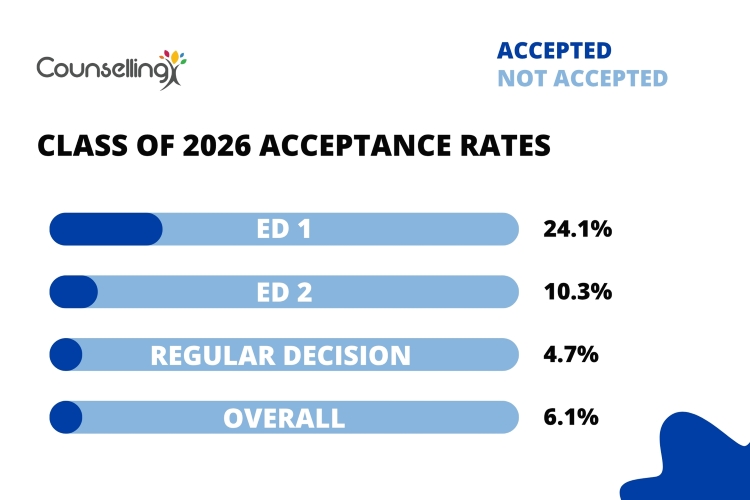We’re living in an exciting time known as the fourth industrial revolution, where data is at the centre of our everyday decisions. As we navigate this ever-changing landscape, it's more important than ever for students to develop strong analytical skills to help them make sense of data and tackle complex challenges.
Analytic skills are about collecting, evaluating, and understanding data. They involve problem-solving and critical thinking, which is important no matter your field—science, math, the arts, or the humanities.
Critical thinking skills empower students to look at information, assess it logically, and make informed decisions, whether dealing with academic challenges or personal and career choices. In this blog, we'll explore why these analytical skills matter for students and how they can shape their futures.
What Are Analytical Skills?

Comprehending analytical skills is an inclination for students, as it helps to change the whole learning experience. Having a grasp of analytical skills helps students process information, address questions independently, and form a solution to the problem.
How do Analytical Skills Help Students?

As discussed, analytical skills play an important role in a student's life. A student capable of developing analytical skills will absorb more information, question the established system and swiftly adapt to new situations. Here are a few examples of how analytical skills help students
Problem-solving
Analytical skills enable students to factor problems into subparts, evaluate probable strategies, and arrive at conclusions through logical analysis. This is especially necessary for maths and sciences because the right method is essential for arriving at the solution.
Example: Analytical cognition can be observed in engineering, where students have to apply analytical knowledge to create effective design implementation strategies or diagnose problems with the body due to their symptoms and past experiences observed by medical students.
However, problem-solving is wider than academic lessons. Students are taught to address issues strategically, apply real-life scenarios, and develop criticality and planning skills.
Critical Thinking
Students who develop critical thinking are better positioned to analyse arguments and can always grasp other perspectives so that premature conclusions are not made. This is particularly useful when educators teach subjects like literature and social studies, where context and intention add value to impact.
Example: Historically, students learn to differentiate between various important matters, such as political, cultural, and social aspects, contributing to their understanding of the effects and causes of events.
Decision Making
Students face countless decisions throughout their education, from picking their subjects to managing their time. Analytical skills can help them make more intelligent choices by examining their strengths and weaknesses and considering potential outcomes.
This approach can lead to better decisions, both in their studies and in their personal lives. It makes decision-making easier and more effective, especially as they juggle their various commitments in school and life.
Example: In a scenario where a student has to choose between two internships, they can compare appropriate factors like organisational culture, training received, or that which is likely to be received and their future in the respective organisations rather than be hasty.
Academic Performance
Analytic skills play a big role in how well students manage their classwork. They help students organise information, connect ideas, break down topics, and solve problems, making understanding their learning easier.
When students have a solid grasp of how to approach projects and assignments, they feel more confident tackling things like data analysis or research projects, which leads to better overall performance.
Example: A businessman engaged with a business proposal essentially uses critical thinking skills to explain why that proposal is better suited for the business than the other proposal.
Also Read: Cornerstone of the Modern MBA.
Confidence of Learning
As to substantive characteristics, analysis-oriented students are usually more willing to confront complex problems. Instead of getting paralysed by such incoming information, they are problem-solving people, making them better learners. This confidence, which results from highly satisfactory academic achievement, enables the students to fully prepare for similar situations they can encounter in the future.
Example: In physics, talented teachers can take complex calculus equations and physical theories and make them easy to understand. This approach clarifies the concepts and helps boost students' confidence in their abilities.
Help in Finding a Direction
Analytic skills help students become more self-directed! They learn to find and evaluate sources independently and reach conclusions without much guidance. These skills are super critical, especially as students move into college, where they'll be expected to take charge of their own learning.
Advance Communication Skills
One great benefit of honing your analytical skills is that it helps clear up confusion. When you analyse data or tackle complex information, you learn to present the facts clearly and organizedly. This is super important for presentations, essays, and discussions because being able to explain your ideas logically can really set you apart from your peers.
Example: A student presenting a science project may develop Evidential, Question-and-Answer public speaking and presentation skills using nominative skills to interpret data.
Develop Adaptability
Students with strong analytical skills have a real advantage in a world that's always changing! These thinkers are great at adjusting their thought processes when encountering new information, making them incredibly resilient and adaptable. This ability helps them thrive in learning and working environments, no matter what challenges come their way.
How Can Students Develop Analytical Skills?

Get Involved in Problem-Based Learning: Tackling real-life challenges can boost your critical thinking and analytical skills.
Practice Data Interpretation: MS Excel is a great way to get comfortable with charts, graphs, and stats. It helps make sense of the numbers.
Embrace Diverse Perspectives: A culturally rich environment opens you up to fresh ideas and viewpoints, which can improve your analytical skills and flexibility.
Dive into Research Projects: These projects are fantastic for honing your ability to effectively identify, analyse, and synthesise data.
Join a Debate Club or Discussion Group: Engaging in lively discussions sharpens your critical thinking and helps you learn to express your opinions confidently.
You might be interested in: Online Educational Counselling Services
Where Can I Use My Analytical Skills?
Once students have honed their analytical skills, they’re ready to explore various exciting careers in different industries. These skills are super flexible and in high demand, as employers appreciate the ability to tackle complex problems, analyse data, and make smart decisions. Here are some fun career paths that students with strong analytical skills might want to consider:
Data Analyst: Collects and analyses information to aid decision-making across various industries, including computers and business.
Business Analyst: Defines business requirements and ensures IT projects align with business needs, primarily in consulting and technology.
Financial Analyst: Analyzes financial data to support investment decisions and manage risks, primarily in banking and corporate finance.
Market Research Analyst: Gathers data on markets and consumers to help companies strategise and identify new opportunities.
Management Consultant: Provides recommendations to improve company performance using industry data.
Software Engineer/Developer: Designs and develops applications based on customer needs, which is prevalent in the IT and software industries.
Economist: Studies economic data to forecast trends, with roles in government and research sectors.
Supply Chain Analyst: Optimizes supply chains using data to address issues and predict demand.
Cybersecurity Analyst: Protects organisations from cyber threats by assessing risks and monitoring security.
Risk Analyst: Evaluates potential risks and advises on management strategies across finance and consulting.
Public Policy Analyst: Analyzes policy impact on society, advising lawmakers using data-driven insights.
Human Resources Analyst: Utilizes data to improve staffing decisions and HR processes.
Environmental Analyst: Studies ecological data to ensure compliance and promote sustainability in various sectors.
Takeaway
Developing analytical skills is one of the best things students can do as they plan for their future! These skills boost academic performance and help learners prepare for the job market, making them effective decision-makers. Students with an analytical mindset tend to be more confident and adaptable, which prepares them to tackle challenges in our ever-changing world.
However, despite being brilliant, many students struggle to handpick their skills in their statements. The expert counsellors at CounsellingX will help you write up a Statement of Purpose that demonstrates all your skills and elaborates how these skills have helped you get this far in your academic life.











